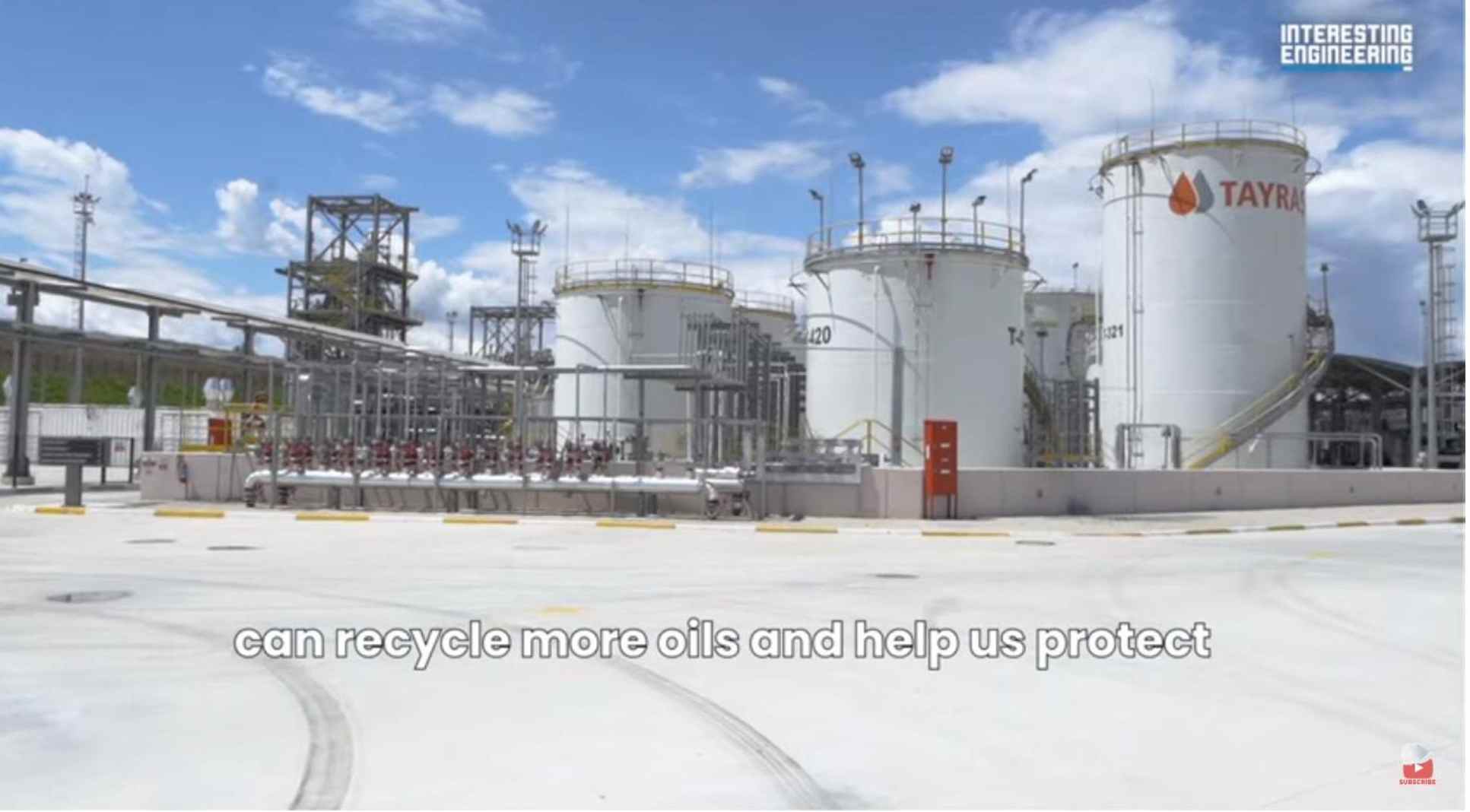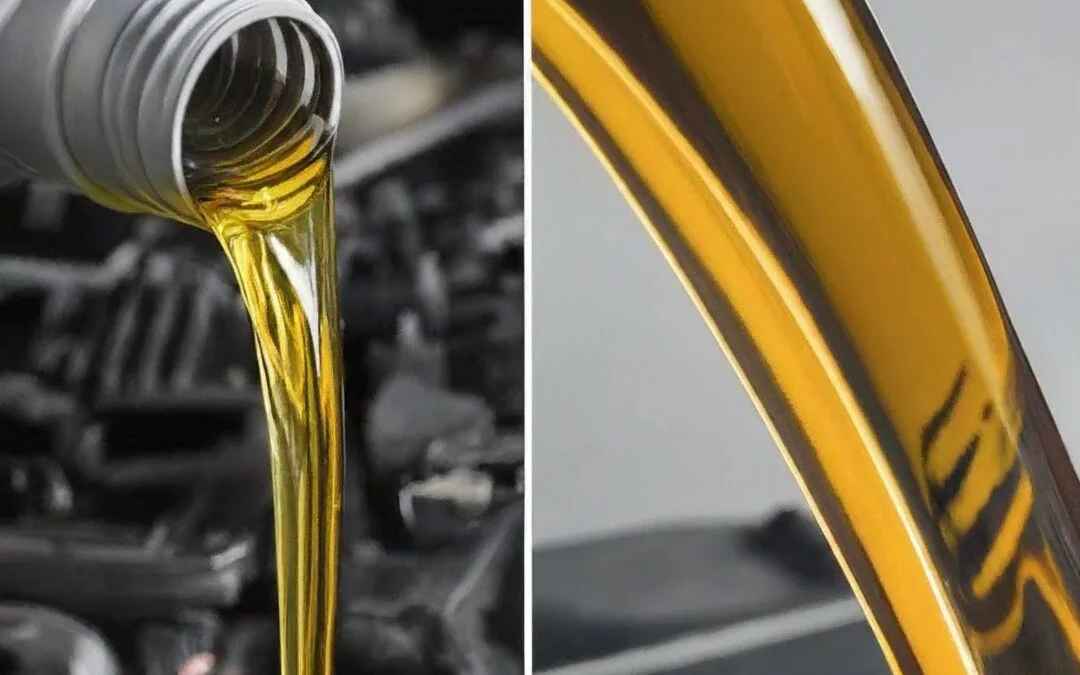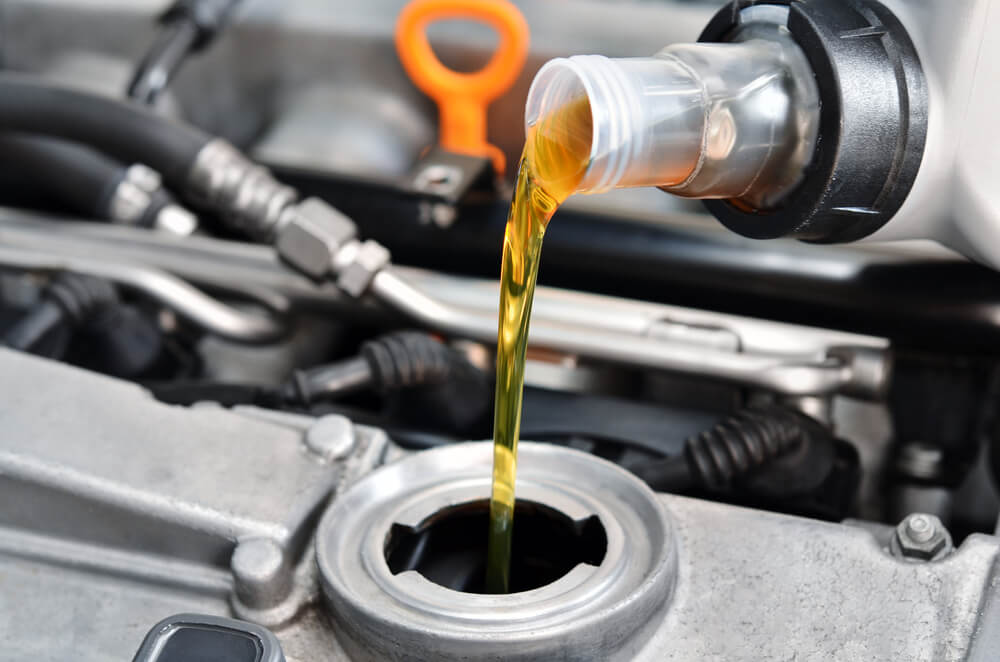Title: “Who Takes Used Motor Oil? A Guide to Responsible Disposal”
Introduction
In the world of engines and automobiles, used motor oil is an inevitable byproduct of routine maintenance. However, what many people don’t realize is that the responsible disposal of this oil is not only crucial but also surprisingly accessible. This blog is your gateway to understanding the eco-friendly avenues available for used motor oil disposal. From local auto parts stores to municipal recycling centers and beyond, we will delve into the “who” and “how” of taking used motor oil off your hands, promoting both a cleaner environment and a smoother ride for your conscience. So, let’s explore the array of options waiting to help you responsibly part ways with your used motor oil.
The Environmental Impact of Used Motor Oil
Used motor oil may seem inconsequential when drained from your vehicle’s engine during an oil change, but its environmental consequences are anything but minor. Understanding the significant impact of used motor oil on the environment is the first step in motivating individuals and businesses to adopt responsible disposal practices.
- Water Pollution: One of the most concerning aspects of improper disposal of used motor oil is its potential to contaminate water sources. When discarded irresponsibly, motor oil can seep into the ground and find its way into groundwater, rivers, lakes, and oceans. Just one gallon of used oil can contaminate one million gallons of water, rendering it undrinkable and harming aquatic ecosystems.
- Soil Contamination: When used motor oil is spilled on the ground or disposed of inappropriately, it can saturate the soil with toxic chemicals and heavy metals. This pollution negatively affects plant life, disrupts soil ecosystems, and makes the affected land unsuitable for agriculture or recreational use.
- Air Quality: In addition to the issues it poses on the ground, the burning of used motor oil emits harmful pollutants into the atmosphere. These emissions contribute to air pollution, smog formation, and health problems for both humans and wildlife. The release of volatile organic compounds (VOCs) and particulate matter from burning used oil can exacerbate respiratory issues and damage the environment.
- Wildlife Impact: Used motor oil is deadly for wildlife. When animals come into contact with oil-contaminated water or soil, it can lead to poisoning and detrimental effects on their health. Birds, in particular, are at risk as oil can compromise the waterproofing properties of their feathers, leaving them vulnerable to hypothermia.
- Long-Term Persistence: Unlike some other pollutants, used motor oil doesn’t break down easily. It can linger in the environment for decades, continuing to wreak havoc on ecosystems and water supplies long after its improper disposal.
- Energy and Resource Consumption: Recycling used motor oil is not only environmentally responsible but also conserves valuable resources. Re-refining used oil requires less energy compared to refining crude oil, making it a sustainable choice for reducing energy consumption and greenhouse gas emissions.
In light of these alarming environmental consequences, it becomes evident that responsible disposal and recycling of used motor oil are not just options but essential practices. Fortunately, there are various avenues available to safely and responsibly dispose of used motor oil, which we will explore in the following sections. By taking action and adopting eco-friendly practices, we can mitigate the harmful impact of used motor oil on our planet and protect the environment for future generations.
Where to Take Used Motor Oil: Responsible Disposal Made Easy
You’ve made the first crucial step in environmental responsibility by acknowledging the impact of used motor oil on our planet. Now, let’s explore the practical side of things: where and how to safely dispose of your used motor oil. Fortunately, there are several accessible options available, making responsible disposal a straightforward and eco-conscious choice.
- Local Auto Parts Stores and Retailers: Many local auto parts stores and retailers participate in used motor oil recycling programs. They often have dedicated collection containers where you can deposit your used oil. This option is not only convenient but also encourages responsible disposal within your community.
- Municipal Recycling Centers: Most municipalities provide recycling centers that accept used motor oil. These centers are equipped to handle various hazardous materials, including motor oil. Check with your local government or visit their website to find the nearest recycling center and inquire about their specific guidelines for disposal.
- Auto Repair Shops: Some auto repair shops accept used motor oil from customers. If you’re getting an oil change or other services done at a repair shop, inquire whether they have a disposal program in place. Many environmentally-conscious shops recycle used oil to reduce their environmental footprint.
- Mobile Collection Events: Keep an eye out for community-driven mobile collection events. These events are organized periodically and provide a convenient way to dispose of used motor oil, often in collaboration with local authorities or environmental organizations. They are especially useful if you have accumulated a larger quantity of used oil.
- DIY Oil Change? You Can Still Do Your Part: If you change your vehicle’s oil at home, you too can contribute to responsible disposal. Invest in a drain pan and funnel to collect the used oil, then store it in a clean, leak-proof container with a secure lid. Once you’ve accumulated a significant amount, take it to one of the aforementioned disposal points.
- Check for Local Regulations: It’s essential to be aware of any local regulations regarding the disposal of used motor oil. Some areas may have specific guidelines, limits on quantities, or restrictions on the types of containers you can use. Always comply with these regulations to ensure responsible disposal.
- Commercial Oil Recycling Services: For businesses that generate larger volumes of used motor oil, there are commercial oil recycling services available. These services can provide collection, transport, and recycling solutions tailored to your needs.
By choosing one of these options, you not only ensure the proper disposal of used motor oil but also contribute to the collective effort to protect our environment. Remember to follow safety precautions when handling used oil, such as avoiding spills, wearing protective gear, and storing it in a cool, dry place until you can safely dispose of it. Your commitment to responsible disposal not only keeps our planet cleaner but also sets an example for others to follow. Together, we can make a significant difference in preserving the environment for future generations.
Preparing Used Motor Oil for Disposal: A Key Step Towards Responsible Environmental Stewardship
Before you hand off your used motor oil for recycling or disposal, there are essential steps to follow to ensure the process is safe, efficient, and environmentally responsible. Properly preparing used motor oil reduces the risk of spills and contamination and helps streamline the recycling or disposal process. Here’s a guide on how to get your used motor oil ready for its next journey:
1. Gather the Right Equipment:
- Clean, leak-proof containers: Use containers that are specifically designed for holding used motor oil. These containers should have secure lids to prevent leaks or spills.
- Funnel and filter: A funnel with a fine mesh filter can help you transfer the oil cleanly from your vehicle’s drain pan to the storage container, removing any debris or contaminants in the process.
- Safety gear: Ensure you have the appropriate personal protective equipment, including gloves and safety goggles, to minimize contact with used oil.
2. Choose a Suitable Container:
Select a container that is in good condition and free from contaminants. Ideally, use the same container that the new motor oil came in, or one specifically designed for used oil storage.
Avoid using containers that previously held chemicals or substances other than motor oil, as residual chemicals can contaminate the oil.
3. Drain the Oil Properly:
When draining the oil from your vehicle, make sure it’s done in a controlled manner. Use an oil drain pan to catch the oil as it flows out of the engine.
Allow the oil to drain completely to ensure you collect all of it. Tilt the vehicle slightly if necessary to access hard-to-reach areas.
4. Filter the Oil:
As you transfer the used oil from the drain pan to the storage container, use a funnel with a filter to catch any debris or contaminants. This step helps ensure the oil is as clean as possible before disposal.
5. Secure the Lid Tightly:
Once the used motor oil is in the storage container, seal the lid securely to prevent any leaks or spills. Ensure it’s closed tightly to maintain the integrity of the container.
6. Label the Container:
Clearly label the container as “Used Motor Oil” to prevent any confusion or accidental misuse. Adding the date of collection can also help track the oil’s age.
7. Store the Oil Safely:
Keep the container in a cool, dry place away from direct sunlight and extreme temperatures. Proper storage prevents degradation of the oil and maintains its quality.
8. Transport with Care:
If you’re taking the used motor oil to a recycling center or collection point, transport it securely to prevent spills during transit. Place the container in a plastic bag or secondary container for added protection.
By following these steps, you not only ensure that your used motor oil is ready for responsible disposal but also contribute to a cleaner and safer environment. Properly prepared used motor oil is more likely to be accepted by recycling facilities, and it minimizes the risk of contamination during handling and transportation. Your commitment to these practices reflects your dedication to environmental stewardship and sets a positive example for others in your community.
Recycling vs. Disposal: Making the Eco-Conscious Choice for Used Motor Oil
When it comes to used motor oil, what you do with it after an oil change can significantly impact the environment. There are two primary options: recycling and disposal. Understanding the key differences and benefits of these choices empowers you to make an eco-conscious decision that not only keeps your vehicle running smoothly but also contributes to a cleaner planet.
Recycling Used Motor Oil:
- Environmentally Friendly: Recycling used motor oil is the greenest choice. It reduces the need for virgin oil production, conserving natural resources and minimizing the energy required for refining.
- Energy Efficiency: Re-refining used motor oil typically uses less energy compared to refining crude oil. This results in lower greenhouse gas emissions and a smaller carbon footprint.
- Quality Control: The recycling process removes impurities and contaminants from used motor oil, resulting in a high-quality product. Re-refined oil meets the same industry standards as virgin motor oil.
- Closes the Loop: Recycling completes the life cycle of motor oil, turning it into a valuable resource for future use. It reduces the overall demand for new oil and helps reduce waste.
Disposal of Used Motor Oil:
- Environmental Impact: Disposing of used motor oil improperly, such as pouring it down the drain or into the ground, poses significant environmental risks. It can contaminate water sources, soil, and harm wildlife.
- Persistence: Used motor oil is slow to break down naturally, and its toxic components can persist in the environment for years, causing long-term harm.
- Air Pollution: Burning used motor oil or allowing it to evaporate releases harmful pollutants into the atmosphere, contributing to air pollution and health issues.
- Resource Waste: Simply disposing of used motor oil means losing the potential to recover and reuse a valuable resource, contributing to resource scarcity.
Making the Right Choice:
Choosing between recycling and disposal is clear-cut. Recycling used motor oil is the environmentally responsible choice. It not only reduces pollution and conserves energy but also supports a sustainable future. Recycling facilities and collection points are widely accessible, making it convenient for vehicle owners to participate in this eco-conscious practice.
Disposal should be a last resort, and even then, it must be done in strict compliance with local regulations. Pouring used motor oil into the environment should never be an option, as it poses severe risks to ecosystems and public health.Recycling is the best option to produce base oil for the betterment of future.
Complying with Local Regulations: The Essential Guide to Responsible Used Motor Oil Disposal
Responsible used motor oil disposal is not just a matter of environmental ethics; it’s also a legal obligation governed by local regulations and laws. Complying with these regulations ensures the protection of the environment, public health, and your own legal standing. Here’s an essential guide on how to navigate and adhere to local regulations regarding used motor oil disposal:
1. Know Your Local Laws:
- Start by researching and familiarizing yourself with the specific regulations governing used motor oil disposal in your area. Local laws may vary, and it’s crucial to understand the rules that apply to you.
2. Quantity Limits:
- Many regions have limits on the amount of used motor oil that individuals can dispose of at one time. These limits are in place to prevent large-scale illegal dumping and to ensure safe handling.
3. Container Specifications:
- Local regulations often dictate the type of containers you can use for storing and transporting used motor oil. Ensure that your containers meet these specifications to avoid compliance issues.
4. Disposal Locations:
- Local laws will guide you to approved disposal locations, such as recycling centers, auto parts stores, or government-run collection points. Use these designated locations for proper disposal.
5. Reporting Requirements:
Some areas require individuals or businesses to report the disposal of used motor oil, especially if the quantities are substantial. This reporting ensures transparency and accountability.
6. Prohibited Practices:
Be aware of any practices that are strictly prohibited, such as dumping used oil into storm drains, sewers, or natural water bodies. These actions can lead to severe penalties.
7. Penalties and Fines:
Local authorities enforce regulations related to used motor oil disposal. Violating these regulations can result in fines, penalties, or legal consequences. It’s essential to take these rules seriously.
8. Seek Guidance:
If you’re unsure about local regulations or have questions regarding compliance, don’t hesitate to reach out to your local environmental agency or municipal government. They can provide guidance and clarification.
9. Stay Informed:
Regulations may change over time, so it’s important to stay informed about any updates or amendments. Local authorities or environmental organizations often provide resources and updates related to used motor oil disposal.
10. Lead by Example:
By complying with local regulations, you set a positive example for your community and demonstrate your commitment to responsible environmental stewardship.
In conclusion, complying with local regulations for used motor oil disposal is not only a legal requirement but also a moral responsibility. It safeguards the environment, prevents pollution, and contributes to the well-being of your community. By following these guidelines and staying informed, you can ensure that your actions align with the law while making a positive impact on the world around you.
Conclusion
In the quest for responsible used motor oil disposal, one thing is abundantly clear: there are numerous options available to ensure the proper handling of this hazardous waste. From local auto parts stores and municipal recycling centers to auto repair shops and community-driven mobile collection events, the landscape is dotted with opportunities to make an eco-conscious choice.
The environmental impact of used motor oil cannot be understated, and it’s our collective duty to mitigate this impact through responsible disposal. By adhering to local regulations, following safety precautions, and choosing recycling over disposal whenever possible, we can safeguard our environment, conserve resources, and promote a cleaner, healthier future.
The question of “who takes used motor oil” is no longer a mystery; it’s a call to action. So, let’s make the right choice and ensure that our used motor oil finds its way to the right hands, contributing to a brighter and more sustainable tomorrow.
Take Action Today! Dispose of Your Used Motor Oil Responsibly!
Now that you know who takes used motor oil and the vital role you can play in safeguarding our environment, it’s time to take action. Whether you’ve just changed your oil at home or have accumulated used motor oil over time, make the responsible choice.
Find the nearest collection point or recycling center and ensure your used motor oil is handled in an eco-friendly manner. By doing so, you contribute to a cleaner planet and set a positive example for others in your community. Every drop counts in the fight against environmental pollution. Don’t wait; act now to make a difference. Your commitment to responsible used motor oil disposal matters more than you may realize
Useful links:
https://scdhec.gov/environment/recycling-waste-reduction/used-motor-oil-recycling
Frequently Asked Questions (FAQ) About Who Takes Used Motor Oil
Why is it important to dispose of used motor oil properly?
- Proper disposal of used motor oil is crucial because it contains harmful contaminants that can harm the environment, contaminate water sources, and pose risks to human and animal health. Responsible disposal helps prevent pollution and conserves resources.
2. Who takes used motor oil?
- Various entities accept used motor oil, including local auto parts stores, municipal recycling centers, auto repair shops, and community-driven mobile collection events. Some regions also offer curbside pickup or drop-off locations.
3. Can I throw used motor oil in the trash or down the drain?
- No, it is not safe or environmentally responsible to throw used motor oil in the trash or down the drain. Doing so can lead to pollution of land and water, potentially resulting in serious environmental damage and legal consequences.
4. What should I do if I change my own oil at home?
- If you change your own oil at home, collect the used oil in a clean, leak-proof container with a secure lid. Store it safely, and then take it to a designated collection point or recycling center. Many auto parts stores accept used motor oil from DIYers.
5. Are there any regulations or restrictions on disposing of used motor oil?
- Yes, regulations regarding used motor oil disposal vary by location. It’s essential to comply with local laws and guidelines, which may include limits on quantities, container specifications, and approved disposal locations.
6. Can used motor oil be recycled, and how does the recycling process work?
- Yes, used motor oil can be recycled. The recycling process typically involves removing impurities and contaminants from the used oil, making it suitable for reuse. Re-refined oil meets the same industry standards as virgin motor oil.
7. Is it necessary to label the container when storing used motor oil?
- Yes, it’s a good practice to label the container as “Used Motor Oil” to prevent confusion and ensure safe handling. Adding the date of collection can also help track the oil’s age.
8. Are there any penalties for improper disposal of used motor oil?
- Yes, improper disposal of used motor oil can result in fines, penalties, or legal consequences, depending on local regulations and the severity of the violation. It’s essential to adhere to disposal guidelines to avoid such consequences.
9. How can I stay informed about local regulations and disposal options?
- Stay informed by regularly checking your local government’s website, contacting your local environmental agency, or reaching out to community organizations. They often provide resources and updates related to used motor oil disposal.
10. What’s the environmental benefit of recycling used motor oil?
- Recycling used motor oil reduces the need for new oil production, conserving natural resources and reducing energy consumption. It also minimizes pollution and greenhouse gas emissions associated with refining crude oil.
Remember that responsible used motor oil disposal not only protects the environment but also contributes to a cleaner, healthier world for everyone.





Leave a Reply